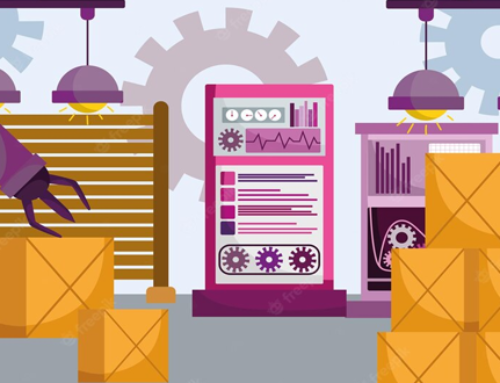Introduction
Navigating the Hotel Management Software Landscape
The hospitality industry thrives on creating exceptional guest experiences. To achieve this, hotels rely on efficient management systems. Traditionally, these systems involved bulky software programs installed on individual computers. However, the landscape is rapidly changing. Hotel Management Web Applications (HMWAs) are emerging as the preferred solution, offering a multitude of benefits for hoteliers.
Why Web Applications are Revolutionizing Hotel Management
HMWAs are web-based software solutions accessible from any device with an internet connection. This shift from desktop software offers several advantages:
- Enhanced Efficiency: HMWAs streamline various hotel operations, automating repetitive tasks like reservations management, housekeeping scheduling, and billing. This frees up valuable staff time to focus on guest interaction and personalized service.
- Improved Communication and Collaboration: Web-based applications allow staff across departments (front desk, housekeeping, maintenance) to access real-time information and collaborate seamlessly. This ensures smooth operations and timely resolution of guest requests.
- Elevated Customer Experience: HMWAs empower hotels to offer guests greater control over their experience. Online booking systems, mobile check-in options, and self-service kiosks enhance convenience. Additionally, features like guest feedback management allow hotels to proactively address any concerns and continuously improve guest satisfaction.
- Accessibility and Scalability: Unlike traditional software, HMWAs are accessible from anywhere with an internet connection. This allows authorized personnel to manage hotel operations remotely and offers flexibility for staff working on-the-go. Furthermore, web-based applications can easily scale to accommodate a growing hotel or a chain with multiple properties.
- Reduced IT Costs: HMWAs often operate on a subscription-based model, eliminating the need for expensive upfront software purchases and dedicated IT infrastructure.
Additionally, automatic software updates ensure hotels always have access to the latest features and security patches.
Charting the Course: The Evolution of Hotel Management Technology
The hospitality industry has embraced technology advancements to streamline operations and enhance guest experiences. Here’s a glimpse into the evolution of hotel management software:
- Early Systems: Traditional hotel management software ran on local servers, requiring installation on individual computers. This limited accessibility and scalability.
- Client-Server Architecture: The rise of client-server architecture allowed for centralized data storage and management, facilitating easier access and data sharing across a network of computers within the hotel.
- Cloud-Based Solutions: The emergence of cloud computing revolutionized hotel management software. Web-based applications offer unprecedented accessibility, scalability, and a pay-as-you-go model, making them a cost-effective and efficient solution for hotels of all sizes.
By embracing HMWAs, hotels can leverage the power of the internet to streamline operations, enhance guest experiences, and navigate the competitive landscape of the modern hospitality industry.
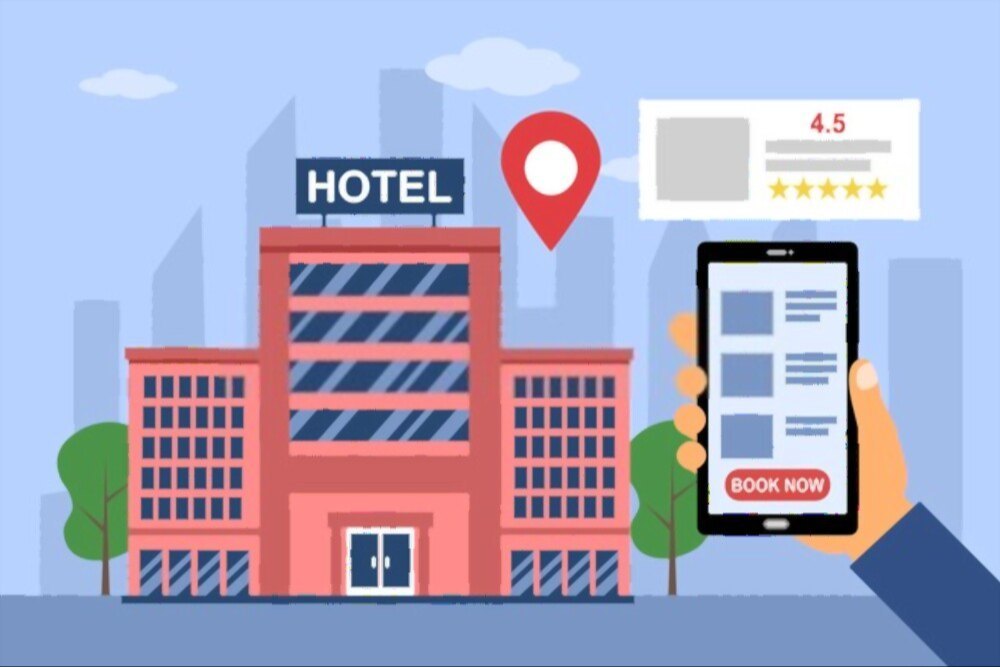
Key Features and Functionalities of Hotel Management Web Applications
Hotel Management Web Applications (HMWAs) empower hoteliers to manage their properties efficiently and deliver exceptional guest experiences. Let’s delve into the core functionalities that transform HMWAs into powerful tools for the hospitality industry:
Reservation and Booking Management
- Seamless Online Booking Engine: Offer a user-friendly online booking engine integrated with your website and mobile app. Allow guests to search for room availability, compare rates, book rooms securely, and manage their reservations online.
- Real-Time Availability Management: Ensure accurate room availability across all your distribution channels (website, online travel agencies, etc.) with a centralized inventory system that updates in real-time.
- Multiple Booking Channels: Expand your reach by integrating with popular online travel agencies (OTAs) and travel metasearch engines. Additionally, facilitate direct bookings through your website and mobile app to capture a larger share of reservations.
- Group Booking Management: streamline the process of handling group bookings by providing dedicated features for managing group rates, room allocations, and guest information for large reservations.
- Promotions and Packages Management: Create and manage special promotions, packages, and last-minute deals to attract guests and boost occupancy rates. HMWAs allow you to define specific booking conditions, pricing options, and visibility across different channels.
Guest Management and CRM Integration
- Centralized Guest Profiles: Maintain detailed guest profiles, capturing information like preferences, past stays, and loyalty program memberships. This allows for personalized service and targeted marketing campaigns.
- Customer Relationship Management (CRM) Integration: Integrate your HMWA with a CRM system to manage guest interactions throughout their journey. Automate personalized emails, track guest feedback, and leverage customer relationship data to enhance guest loyalty.
- Self-Service Options: Empower guests with self-service options like online check-in/check-out, room service ordering, and amenity booking through the web application or mobile app. This reduces lines at the front desk and offers guests greater control over their stay.
- Guest Feedback Management: Solicit and manage guest feedback through online surveys or in-app reviews. Analyze feedback to identify areas for improvement and demonstrate responsiveness to guest concerns.
Room and Inventory Management
- Real-Time Inventory Control: Maintain accurate room availability and prevent overbooking with a centralized inventory management system. This ensures guests can always book the room they desire and avoids booking conflicts.
- Housekeeping Management: Automate housekeeping tasks by assigning rooms for cleaning based on guest checkout schedules or occupancy status. HMWAs can also facilitate communication between housekeeping staff and front desk personnel regarding room statuses and special requests.
- Room Maintenance Tracking: Manage and track room maintenance schedules, repairs, and work orders within the HMWA. This ensures timely maintenance and avoids any inconvenience to guests.
- Amenities Management: Manage guest access to hotel amenities like gym facilities, spa appointments, or pool reservations through the HMWA.
Billing and Payment Processing
- Secure Payment Gateway Integration: Integrate secure payment gateways to offer guests a variety of payment options during booking or upon checkout. This includes credit cards, debit cards, e-wallets, and other popular online payment methods.
- Automated Invoicing: Generate and send electronic invoices to guests automatically after their stay. HMWAs can also manage deposits, pre-payments, and final settlements efficiently.
- Revenue Management Tools: Utilize built-in revenue management tools to analyze historical data, set dynamic pricing strategies based on demand and seasonality, and optimize room rates to maximize revenue.
Reporting and Analytics
- Performance Metrics and Reports: Gain valuable insights into hotel operations through comprehensive reports. Track key performance indicators (KPIs) like occupancy rates, revenue generated, guest acquisition costs, and guest satisfaction scores.
- Business Intelligence Dashboards: Utilize interactive dashboards to visualize key metrics and identify trends. This allows hoteliers to make data-driven decisions regarding pricing strategies, marketing campaigns, and resource allocation.
- Data Export and Integration: The ability to export data from your HMWA allows for further analysis with external business intelligence tools and integration with accounting software for seamless financial management.
By incorporating these functionalities, HMWAs empower hotels to streamline operations, enhance guest service, and gain valuable insights to optimize their business performance.
Unveiling the Benefits of Hotel Management Web Applications
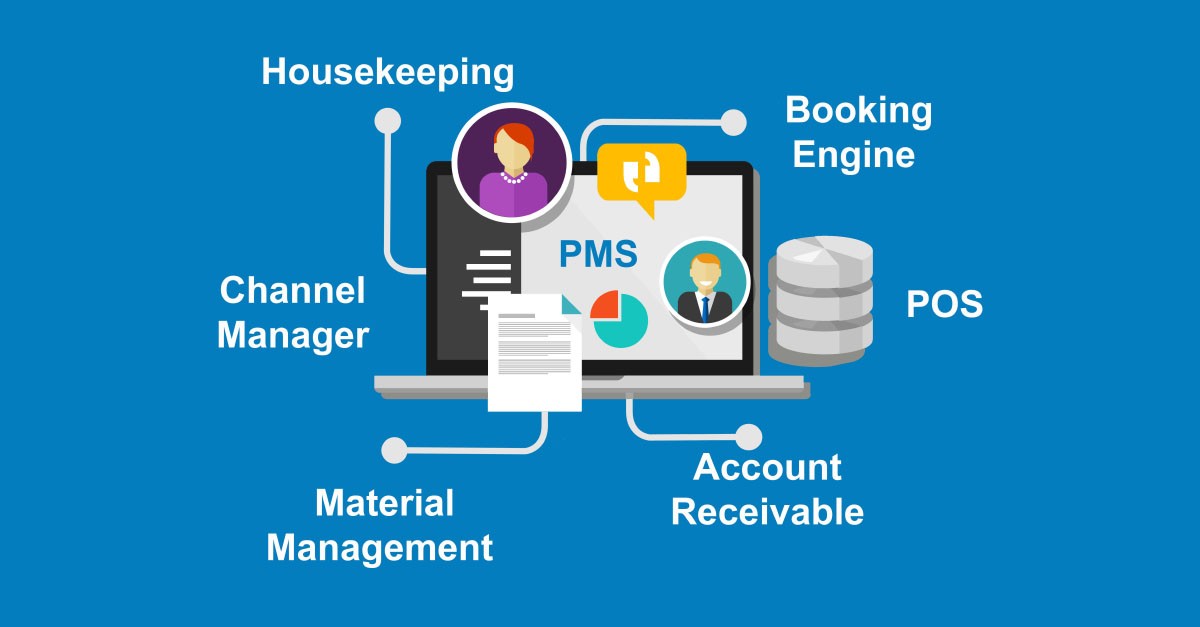
In today’s competitive hospitality landscape, efficiency, exceptional guest service, and data-driven decision making are paramount for hotels to thrive. Hotel Management Web Applications (HMWAs) offer a powerful solution, empowering hoteliers to achieve these goals and unlock a multitude of advantages.
Enhanced Operational Efficiency: Streamlining Workflows for a Smoother Run
- Streamlined Processes: HMWAs automate repetitive tasks like reservations management, room assignment, billing, and guest communication. This frees up valuable staff time for more strategic tasks and personalized guest interaction.
- Improved Communication and Collaboration: Web-based applications facilitate seamless communication and collaboration between departments. Real-time data access ensures everyone is on the same page, leading to smoother operations and faster resolution of guest requests.
- Reduced Manual Errors: Automation minimizes the risk of human error in tasks like reservation management and billing. This improves operational accuracy and guest satisfaction.
- Resource Optimization: By streamlining workflows and automating tasks, HMWAs allow hotels to optimize staffing levels and resource allocation. This translates to cost savings and improved operational efficiency.
Improved Guest Experience: Cultivating Loyalty Through Personalized Service
- Personalized Guest Service: HMWAs allow hotels to leverage guest data to personalize the experience. Offer welcome messages with guest names, room preferences based on past stays, or targeted promotions for services they might enjoy. This enhances guest satisfaction and loyalty.
- Convenience and Control: Guests can manage their reservations, check-in online, and access hotel information through the web application or mobile app. This empowers them with greater control over their stay and reduces waiting times at the front desk.
- Self-Service Options: HMWAs facilitate self-service options like mobile check-in/check-out, room service ordering, or amenity booking. This provides guests with flexibility and convenience, catering to the modern traveler’s desire for self-directed experiences.
- Improved Communication with Guests: HMWAs allow for better communication with guests throughout their stay. Offer real-time updates on housekeeping schedules, amenity availability, or special events through the app or personalized emails.
Better Decision Making with Data Analytics: Transforming Insights into Actionable Strategies
- Data-Driven Decision Making: HMWAs provide comprehensive reporting and analytics tools. Track key performance indicators (KPIs) like occupancy rates, revenue generated, guest acquisition costs, and guest satisfaction scores. This data empowers hoteliers to make informed decisions regarding pricing strategies, marketing campaigns, and resource allocation.
- Revenue Management Optimization: Built-in revenue management tools allow hoteliers to analyze historical data, track competitor pricing, and set dynamic room rates based on demand and seasonality. This helps maximize revenue and optimize room occupancy.
- Forecasting and Trend Analysis: HMWAs provide valuable insights into booking trends, guest demographics, and seasonal fluctuations. This allows hoteliers to forecast future demand, identify potential market opportunities, and develop targeted marketing campaigns.
- Identifying Areas for Improvement: By analyzing guest feedback, operational data, and staff performance metrics, hoteliers can identify areas for improvement and implement targeted strategies to enhance guest satisfaction and staff efficiency.
Scalability and Flexibility: Adapting to Change and Growth
- Scalability for Growth: HMWAs are inherently scalable. As your hotel grows or expands to multiple locations, the web-based application can easily adapt to accommodate additional rooms, guest data, and staff users.
- Flexibility and Customization: Many HMWAs offer customization options to tailor features and functionalities to meet the specific needs of your hotel size, type, and target audience.
- Integration with Existing Systems: HMWAs can integrate with existing property management systems, accounting software, and marketing platforms. This ensures seamless data flow and avoids the need for manual data entry, saving time and minimizing errors.
- Mobile Accessibility: HMWAs often come with a mobile app component, allowing guests to manage their reservations, access hotel information, and connect with staff on the go. This caters to the growing trend of mobile-first travel planning and booking.
By leveraging the advantages of HMWAs, hotels can streamline operations, enhance guest experiences, and make data-driven decisions to optimize business performance. In today’s digital age, HMWAs have become an essential tool for hotels to navigate the competitive landscape and thrive in the ever-evolving hospitality industry.
Considerations for Selecting a Hotel Management Web Application
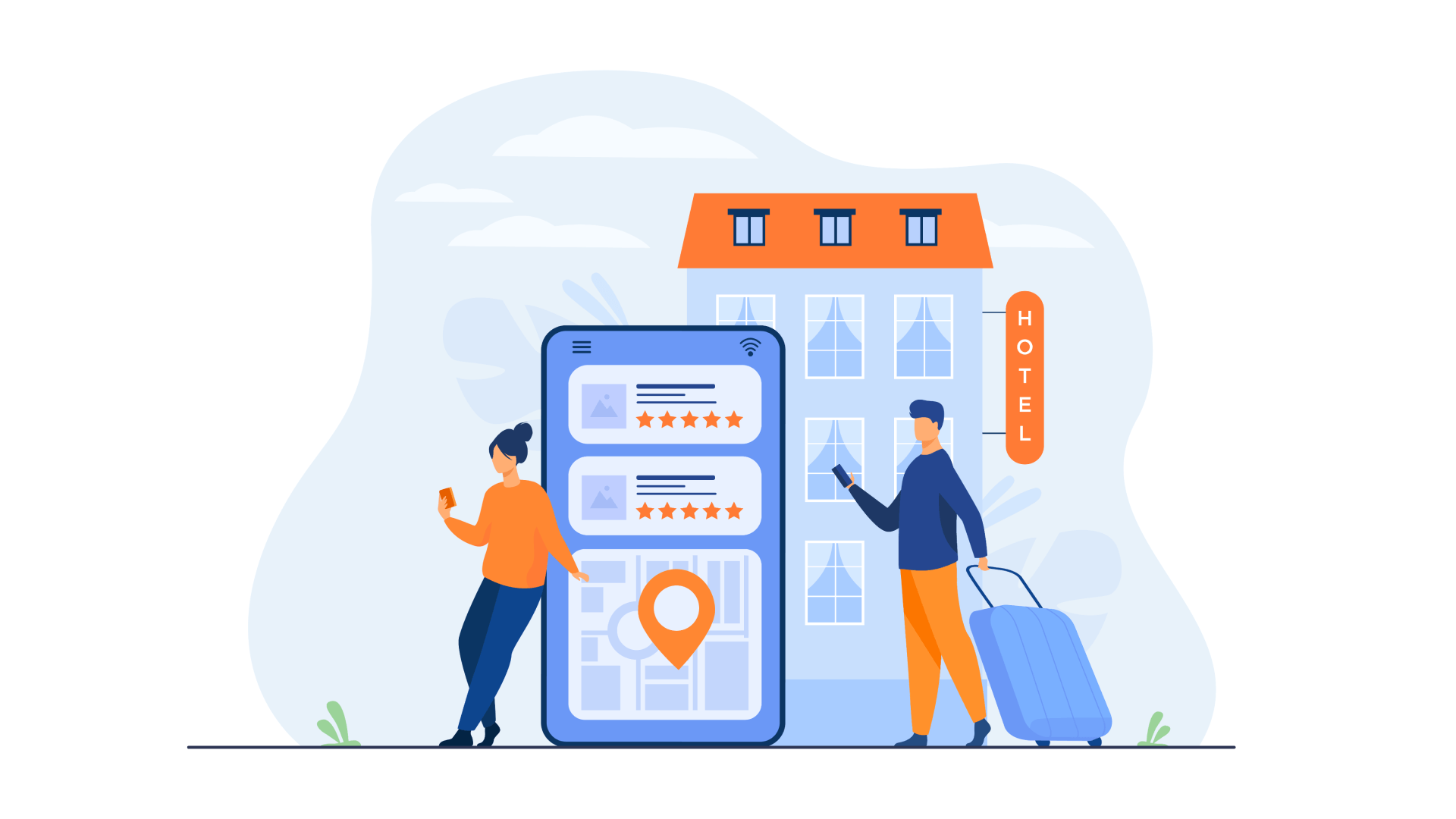
With a vast array of Hotel Management Web Applications (HMWAs) available, selecting the right one for your hotel requires careful consideration. Here are some key factors to evaluate:
Integration Capabilities with Existing Systems
- Compatibility: Ensure the HMWA integrates seamlessly with your existing property management system (PMS), accounting software, and any other relevant business applications. This avoids data silos and ensures smooth information flow across all your systems.
- API Support: Look for HMWAs that offer robust Application Programming Interfaces (APIs) that facilitate easy integration with your existing systems. This allows for customized data exchange and avoids the need for manual data entry, minimizing errors and saving time.
- Data Migration: Consider the ease of data migration from your existing systems to the HMWA. Some vendors may offer assistance with data migration, making the transition smoother.
User-Friendly Interface and Training
- Intuitive Design: The HMWA’s interface should be user-friendly for both staff and guests. An intuitive design with clear navigation and simple functionality ensures efficient adoption and reduces training time.
- Onboarding and Training: Evaluate the HMWA vendor’s training and support offerings. Look for comprehensive training programs for staff to ensure they can effectively utilize all the features and functionalities of the system.
- Ongoing User Support: Reliable and responsive user support is crucial for troubleshooting any issues that may arise during implementation or ongoing use. Choose an HMWA vendor with a dedicated support team available through various channels (phone, email, live chat).
Security and Compliance
- Data Protection: The HMWA should have robust security measures in place to protect sensitive guest data like credit card information and passport details. Look for features like encryption, user authentication protocols, and regular security audits.
- PCI DSS Compliance: For hotels processing credit card payments, ensure the HMWA is compliant with the Payment Card Industry Data Security Standard (PCI DSS). This ensures secure credit card transactions and protects guest financial information.
- General Data Protection Regulation (GDPR) Compliance: For hotels operating in the European Union (EU), compliance with the General Data Protection Regulation (GDPR) is crucial. Choose an HMWA that adheres to GDPR regulations regarding data privacy and user consent.
Cost and Return on Investment (ROI)
- Pricing Models: HMWAs typically offer various pricing models, including subscription fees based on the number of rooms, features used, or a percentage of revenue generated. Evaluate the pricing structure and compare it to your budget and expected usage.
- Total Cost of Ownership (TCO): Consider the total cost of ownership (TCO) beyond the initial purchase price. This includes ongoing subscription fees, training costs, implementation costs, and any additional maintenance or support charges.
- ROI Analysis: Carefully evaluate the potential return on investment (ROI) associated with the HMWA. Consider factors like increased operational efficiency, improved guest satisfaction, potential revenue growth from optimized pricing strategies, and cost savings from reduced manual tasks.
By carefully considering these factors, hotels can make an informed decision when selecting a Hotel Management Web Application that meets their specific needs, budget, and technological infrastructure. Remember, the ideal HMWA should not only streamline operations and enhance guest experiences but also offer a clear path to a positive return on investment.
Emerging Trends in Hotel Management Web Applications
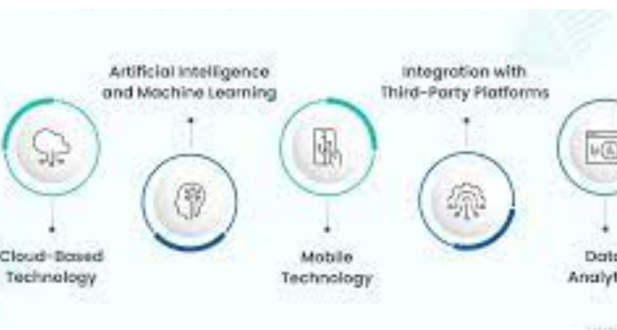
The hospitality industry is constantly evolving, and Hotel Management Web Applications (HMWAs) are at the forefront of this transformation. As technology continues to advance, we can expect to see exciting new trends emerge in the realm of HMWAs, further revolutionizing how hotels operate and guests experience their stays.
Artificial Intelligence and Machine Learning (AI/ML) Integration
- Predictive Analytics: AI-powered HMWAs will leverage guest data and historical trends to predict guest behavior and preferences. This allows hotels to personalize guest experiences proactively. Imagine the HMWA recommending in-room amenities based on past stays, suggesting local attractions based on guest interests, or even predicting room service orders.
- Dynamic Pricing Optimization: Machine learning algorithms can analyze real-time market data, competitor pricing, and booking trends to suggest optimal room rates. This ensures hotels maximize revenue while remaining competitive in the market.
- Automated Guest Communication: Chatbots powered by AI can handle basic guest inquiries about amenities, directions, or hotel services. This frees up staff time for more complex guest interactions and personalized service.
Internet of Things (IoT) Integration
- Smart Rooms and Personalized Comfort: HMWA integration with smart room technology allows guests to control lighting, temperature, and even entertainment systems through their mobile devices or voice commands. Imagine guests adjusting the room temperature or setting the mood lighting before arrival, creating a personalized and comfortable environment.
- Improved Operational Efficiency: IoT sensors can monitor factors like room temperature, energy consumption, or mini-bar usage. This data can be fed into the HMWA, allowing for preventive maintenance, optimized energy usage, and automated restocking of mini-bars, streamlining operations and reducing costs.
- Enhanced Guest Safety and Security: IoT-enabled door locks and security systems can be integrated with the HMWA, allowing for keyless room entry and real-time monitoring for security breaches.
Voice Technology and Virtual Assistants
- Seamless Guest Interaction with Voice Commands: Imagine guests using voice commands to order room service, adjust room temperature, or request amenities through their smart speakers or virtual assistants integrated with the HMWA. This hands-free approach offers a convenient and futuristic guest experience.
- Personalized Travel Recommendations: Virtual assistants can leverage guest data and preferences to suggest personalized itineraries, recommend nearby restaurants, or book local tours, all through voice interactions. This elevates the guest experience beyond simply providing room reservations.
- Multilingual Support and Accessibility: Voice technology can bridge language barriers and cater to guests with disabilities. Virtual assistants with built-in translation capabilities and voice commands can enhance accessibility and inclusivity for a broader range of guests.
These are just a few examples of the exciting possibilities that AI, IoT, and voice technology hold for the future of Hotel Management Web Applications. As these trends continue to develop, we can expect even more innovative solutions that will transform the hotel industry, further personalizing guest experiences, optimizing hotel operations, and driving revenue growth.
Conclusion : Empowering Hospitality: Web Applications as the Cornerstone of Transformation
The hospitality industry thrives on creating memorable guest experiences. In today’s digital age, Hotel Management Web Applications (HMWAs) have emerged as a powerful tool for hotels to achieve this goal and navigate the competitive landscape. By transitioning from traditional software to web-based solutions, hotels can unlock a multitude of benefits, transforming their operations and propelling them towards success.
HMWAs streamline workflows, automate repetitive tasks, and facilitate seamless communication between departments. This translates to increased operational efficiency, reduced errors, and optimized resource allocation. Furthermore, HMWAs empower hotels to offer exceptional guest experiences. Online booking, mobile check-in/check-out options, and self-service features cater to the modern traveler’s desire for convenience and control. Additionally, guest profiles and CRM integration allow for personalized service and targeted marketing campaigns, fostering guest loyalty.
Beyond operational efficiency and guest experience, HMWAs empower data-driven decision making. Through comprehensive reporting and analytics tools, hoteliers gain valuable insights into guest behavior, market trends, and revenue generation. This data empowers them to set dynamic room rates, optimize marketing strategies, and identify areas for improvement, ensuring long-term business success.
As technology continues to evolve, the future of HMWAs is brimming with exciting possibilities. Artificial intelligence, the Internet of Things (IoT), and voice technology hold the potential to further personalize guest experiences, automate tasks, and enhance security measures. Imagine guests controlling room environments with voice commands, receiving personalized recommendations through virtual assistants, or experiencing seamless keyless entry using their smartphones.
In conclusion, Hotel Management Web Applications are no longer a luxury; they are a necessity for hotels to thrive in the digital age. By embracing HMWAs, hotels can streamline operations, enhance guest experiences, and make data-driven decisions, ultimately transforming their hospitality offerings and securing a competitive edge in the ever-evolving travel industry. As technology advances, HMWAs will continue to evolve, shaping the future of guest experiences and propelling the hospitality industry towards a new era of innovation and excellence.
Contact us for more information +91-9035-966-966,+91-8050-966-966
A hotel management web application is a software solution designed specifically for the hospitality industry to streamline operations such as reservation management, guest services, billing, and inventory control. It’s accessible via web browsers, allowing hotel staff to manage tasks efficiently from any location with internet access.
Hotel management web applications typically include features such as reservation and booking management, guest profile management, room and inventory management, billing and invoicing, reporting and analytics, and integration with third-party services like payment gateways and CRM systems.
Hotel management web applications offer numerous benefits to hoteliers, including improved operational efficiency through automation, enhanced guest experience with personalized services, better resource management, real-time reporting for data-driven decisions, and increased revenue through upselling opportunities and targeted marketing campaigns.
Security is a top priority for hotel management web applications. They employ industry-standard encryption protocols to secure guest data, implement access controls to prevent unauthorized access, regularly update software to patch vulnerabilities, and comply with data protection regulations such as GDPR and PCI DSS.
When selecting a hotel management web application, consider factors such as ease of use and user interface, scalability to accommodate future growth, integration capabilities with existing systems, customer support and training options, pricing models, and compliance with industry standards and regulations.

